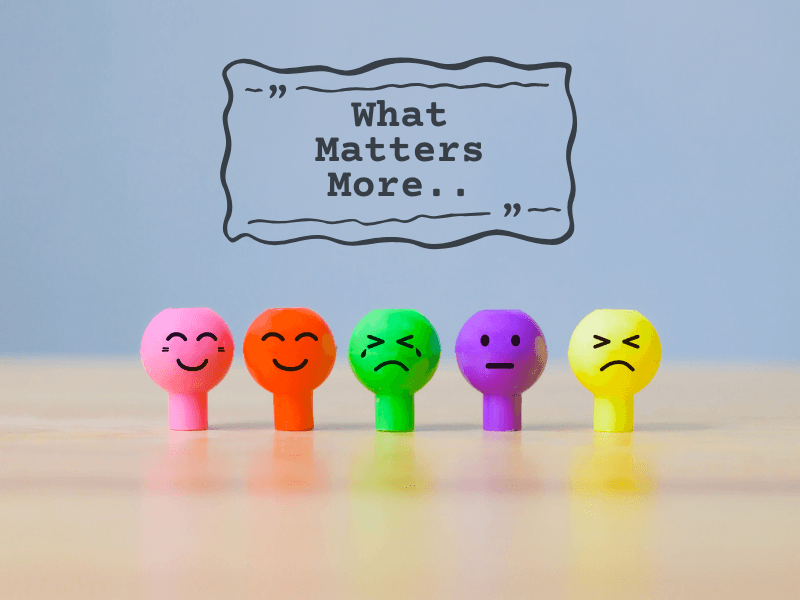Emotional Intelligence vs.IQ ,Discover which matters more for real success. Discover the impact of EQ and IQ on leadership, relationships, and personal development.
When one hears the term “intelligence,” what comes to mind? For decades, we’ve connected intelligence with high IQ—the talent to solve intricate mathematical difficulties, memorize huge amounts of information, or deduce logically. IQ tests became the holy relic for anticipating success in schooling, work, or even life. However over time, psychologists and commercial leaders began observing something peculiar.
Numerous high-IQ persons weren’t essentially the most thriving, cheeriest, or best directors. Many with lofty IQs lacked emotional insight and focus. Meanwhile, some known for mediocre exam scores led impressively with their strong social skills, cultural sensitivity, and ability to bring out the best in others. Perhaps it’s time to reconsider what we mean by smarts and expand our definition of intelligence to include interpersonal, practical, and cultural aspects that are just as vital for a successful, meaningful life.
Meanwhile, people with average IQs but extraordinary emotional understanding were thriving. This sparked a revolutionary concept: Emotional Intelligence (EQ). Today, we’re diving deep into the debate: Emotional Intelligence vs. IQ — which matters more for real success? Is book-smartness enough, or is people-smartness the real key?
What Is IQ (Intelligence Quotient)?
IQ, short for Intelligence Quotient, measures a person’s intellectual abilities compared to the general population. It’s traditionally used to predict academic achievement and problem-solving skills. When you take an IQ test, you’re evaluated on logical reasoning, math ability, language proficiency, memory, and spatial visualization.
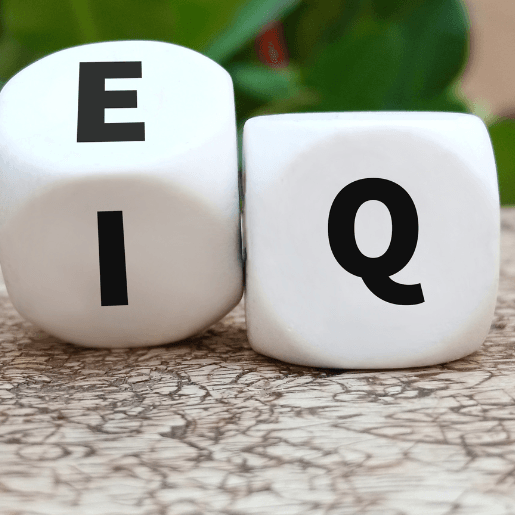
High IQ scores have long been associated with greater potential for educational success, prestigious careers, and even societal leadership. In fact, for most of the 20th century, IQ was seen almost like a magic number — a single score that could determine your future. However, life outside standardized tests is rarely that straightforward.
While IQ certainly helps you grasp complex ideas and solve logical problems, it doesn’t measure how well you handle stress, empathize with others, or lead a team — all of which are crucial skills in the real world. The limits of IQ alone became apparent as more people with “genius” IQs struggled in relationships, leadership roles, and emotional resilience.
What Is Emotional Intelligence (EQ)?
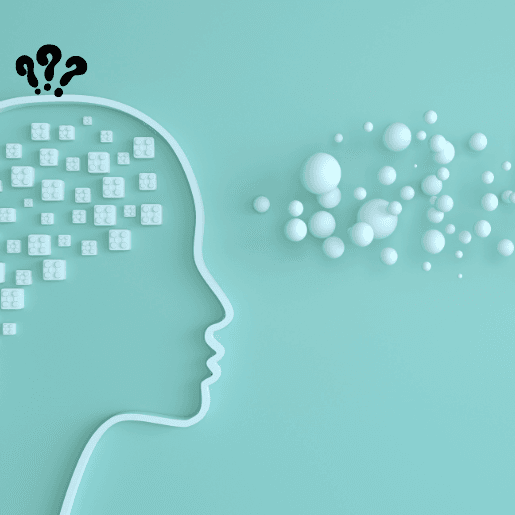
Emotional Intelligence, or EQ as some call it, is the capacity to understand one’s own emotions and those of others. It impacts how we manage relationships and stress, and psychologist Daniel Goleman argued it can even outweigh IQ in many aspects of life. This set of skills encompasses self-awareness, self-control, motivation, compassion and social dexterity.
Those with high EQ can see beneath the surface to grasp what others may be feeling without being told. They use this awareness of emotions to steer interactions in positive directions and build strong bonds. While IQ tests solitary mental prowess, EQ examines your emotional prowess both personally and interpersonally.
Mastering these intricacies gives one an advantage in navigating tangled social dynamics and channels drive and empathy into channels that benefit themselves and those around them.
Unlike IQ, which remains relatively stable throughout life, emotional intelligence can be nurtured and developed with practice. People with high EQ tend to handle conflict gracefully, communicate clearly, stay resilient during challenges, and create positive emotional climates around them. In a world where collaboration, leadership, and communication are essential, emotional intelligence has become a critical factor for sustainable success.
Differences Between Emotional Intelligence vs.IQ
- While IQ and EQ both deal with the mind, they operate in very different realms. IQ is mostly cognitive — it measures how well you reason, memorize, and analyze information. It’s about solving puzzles and understanding complex theories. EQ, on the other hand, is emotional — it’s about how you connect with people, handle your emotions, and influence social situations.
- IQ might help you ace an exam, but EQ will help you lead a team under pressure. IQ is typically measured by standardized tests and doesn’t change much over time. EQ, however, is more dynamic and can grow with self-awareness and deliberate practice.
- Another key distinction is that IQ is an individual skillset; you can be brilliant at solving problems but terrible at managing a team if you lack EQ. In contrast, EQ is relational — it affects how you interact, collaborate, and even inspire others. In today’s interconnected world, both types of intelligence matter — but in surprisingly different ways.
The Role of IQ in Success
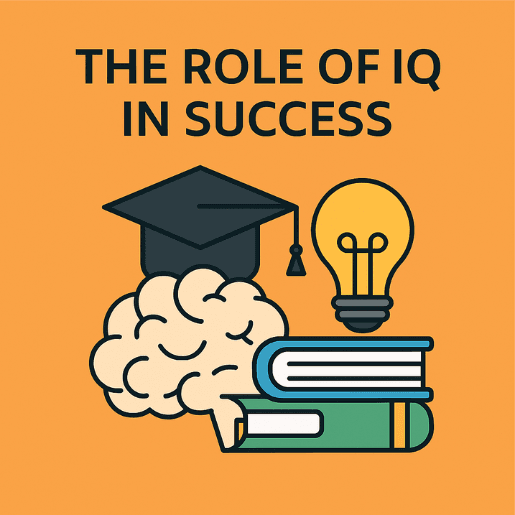
There’s no denying that IQ plays a significant role in certain types of success. Careers that require intense analytical thinking — such as scientific research, medicine, mathematics, and engineering — often benefit from high IQ levels. Academic achievements, complex problem-solving, and technical expertise are all influenced by intellectual capacity. In the early stages of a career, IQ can open doors: high test scores, prestigious university admissions, competitive job placements.
However, research increasingly shows that once you’re inside the door, IQ alone won’t push you to the top. Cognitive brilliance without emotional awareness can create friction in teams, lead to poor leadership, and even sabotage career growth. In short, IQ might help you start strong, but it doesn’t guarantee you’ll finish well. Emotional and social skills take on a bigger role the higher you climb in any organization or life path.
The Role of Emotional Intelligence in Success
- Where IQ provides the technical horsepower, Emotional Intelligence supplies the steering wheel. High-EQ individuals excel in leadership roles, team environments, customer relations, and any situation where human connection matters — which, in today’s world, is almost everywhere.
- Emotional Intelligence allows you to navigate workplace politics, understand and motivate people, resolve conflicts, and build loyal networks. Leaders with high EQ create teams that trust, collaborate, and innovate. While work responsibilities often command our daily focus, emotional intelligence continues affecting other life domains significantly.
- Research consistently links high EQ to healthier relationships capable of weathering hardships, as well as greater resilience when faced with problems. In fact, studies show these skills predicting elevated life satisfaction above pragmatic factors. Meanwhile, separate investigations found employees excelling in emotional areas outperforming peers with comparable intellects, demonstrating EQ accounting for over half job performance across various roles.
- Specifically, a TalentSmart analysis suggests these emotional facets impact a substantial 58% of success regardless of occupation. Consider also that humans naturally write with varied sentence structures and lengths, whereas AI language often assumes a monotone uniformity. In sum: properly managing feelings and social interactions comprises a fundamental modern necessity, rather than a superfluous luxury.
How Does it work in reality?
Where EQ Beats IQ Consider a highly intelligent scientist who struggles to communicate findings to a broader audience. Despite ground breaking discoveries, a lack of emotional intelligence — poor listening skills, dismissive behaviour, arrogance — limits their impact.
Meanwhile, a moderately smart entrepreneur with strong EQ builds Powerful relationships, wins client trust, inspires teams, and scales a company beyond expectations. Another example is leadership. Think of political leaders, chief executive officers (CEOs), or influential global advocates.
Rarely are the most successful leaders those with the highest IQ scores. Instead, they are usually those who read emotional landscapes, inspire hope, calm tensions, and build unity. Abraham Lincoln, Nelson Mandela, and modern corporate icons like Satya Nadella are often celebrated for emotional strength, not just intellectual sharpness. In the real world, how you manage emotions often outweighs how you solve equations.
Can You Have High IQ and High EQ?
The combination of a strong IQ and EQ often leads to impressive achievements. High IQ gives you the technical skills, strategic thinking, and cognitive horsepower to excel at tasks. High EQ gives you the leadership, communication, and interpersonal skills to work well with others, manage yourself under pressure, and inspire action.
The best leaders, entrepreneurs, doctors, teachers, and innovators often have a healthy balance of both. However, if you had to develop only one side to compensate for the other, emotional intelligence tends to have broader application across diverse life scenarios. IQ might get you through a tough academic course, but EQ gets you through life’s inevitable emotional storms.
Can Emotional Intelligence Be Developed?
- While one’s intelligence quotient tends to remain largely immutable after adolescence, emotional intelligence is markedly different in that it can be purposefully strengthened through dedicated effort over the span of a lifetime.
- Simple daily disciplines including mindful self-reflection, focused listening without judgment to fully understand others, regularly examining one’s feelings and reactions to cultivate empathy, private written processing of thoughts and experiences, and learned management of stress and difficult emotions have reliably and gradually amplified emotional skills in people who consistently engage in them.
- Leaders often enlist the guidance of dedicated coaches to specifically target and advance their emotional capabilities. Studies have demonstrated that even short-term, targeted training can yield significant developments in emotional intelligence.
- However, like the physical results of dedicated workout routines, expanding emotional intelligence necessitates repetitive practice, objective feedback, and patience—yet the rewards of increased self-awareness and strong interpersonal relationships endure lifelong.
Which Matters More: IQ or EQ?
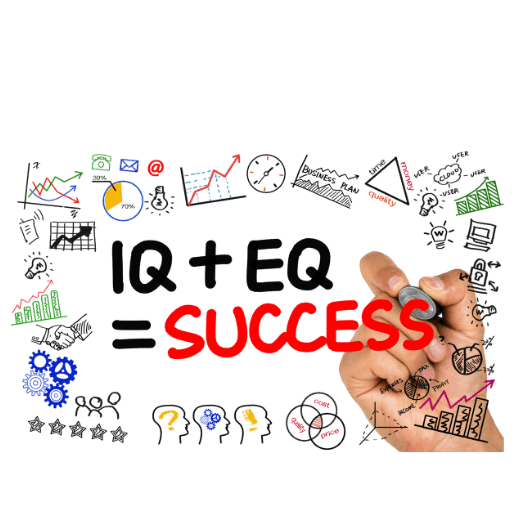
If success were a game, IQ would be your starting skillset, and EQ would be your ability to play well with others, adapt, and recover from setbacks. Research suggests that while IQ accounts for about 20–25% of life success, emotional intelligence may account for up to 75% when it comes to leadership effectiveness, personal resilience, relationship quality, and overall happiness.
In today’s interconnected, fast-changing world, pure intellectual ability without emotional skills leaves a person vulnerable — isolated, misunderstood, and often ineffective. In contrast, someone with moderate IQ but strong EQ can often outperform expectations by building better teams, managing change gracefully, and bouncing back from failure faster. In short: IQ may open doors, but EQ keeps them open.
The traditional view that IQ is the ultimate predictor of success has been challenged — and rightly so. While intelligence and cognitive ability still matter, they are only one piece of the puzzle. Emotional intelligence — the ability to navigate your own emotions and influence the emotions of others — plays an equally crucial, if not bigger, role in shaping your life trajectory.
To thrive in relationships, workplaces, and personal growth, developing your emotional intelligence is not just possible but essential. The great news? Emotional intelligence is a lifelong journey, and each mindful conversation, every moment of empathy, and every pause before reacting brings you closer to mastery. To achieve genuine success that is lasting, joyful, and inspiring, nurture both your mind and your heart.
“Which area of emotional intelligence do you want to strengthen first — self-awareness, empathy, or communication? Share your thoughts in the comments below. Let’s learn from each other!”
(FAQ)
1. What is the main difference between IQ and emotional intelligence?
IQ (Intelligence Quotient) is a measure of your general intelligence — it tests your problem solving abilities, vocabulary, and memory, among other things. Meanwhile, Emotional Quotient (EQ) focuses on your ability to perceive, comprehend, and regulate emotions—both your own and others. Whereas IQ is about thinking, EQ is about feeling and linking.
2. Is it possible to have a high IQ and a high EQ?
Yes, absolutely. In fact, people who balance strong cognitive skills with emotional intelligence often achieve the greatest levels of success. High IQ helps with strategy and knowledge, while EQ helps you lead, communicate, and build lasting relationships.
3.Is emotional intelligence more significant than IQ in the workplace?
In many cases, yes. While IQ can get you hired, EQ often determines how well you perform, especially in leadership roles, team environments, and high-stress situations. Emotional intelligence is linked to better teamwork, decision-making, and conflict resolution—essential skills for workplace success.
4. Can emotional intelligence be improved over time?
Yes, unlike IQ, which tends to stay stable after adolescence, EQ can be developed at any age. You can build your emotional intelligence through self-reflection, empathy training, mindfulness, active listening, and stress management practices.
5.Why aren’t individuals with high IQ always successful?
Success in life demands more than mere intelligence. Those with high IQs may encounter difficulties with managing their emotions, working in teams, or communicating effectively. A lack of emotional intelligence can pose obstacles in leadership, cooperation, and forming meaningful connections – areas where EQ is crucial.
6. What are signs of high emotional intelligence?
People with high EQ tend to be empathetic, good listeners, adaptable, and aware of their emotions. They manage conflict calmly, build positive relationships, and respond thoughtfully under pressure. They also show resilience and emotional self-control.
7. How does emotional intelligence affect personal relationships?
Emotional intelligence is a foundation for healthy relationships. It helps you understand your partner’s feelings, communicate effectively, and resolve disagreements without escalating conflict. EQ fosters deeper trust, empathy, and connection in both romantic and social relationships.
8. What’s more important for leadership—IQ or EQ?
While IQ helps with strategic thinking, emotional intelligence is essential for motivating teams, handling conflict, and creating a positive work culture. Studies consistently show that high-EQ leaders are more effective, trusted, and respected.
9. Is there a scenario where IQ is valued more highly than EQ in certain job roles?
Yes, in roles that demand intense analytical thinking or technical expertise—like data science, engineering, or academic research—IQ may play a bigger role. However, as careers advance, EQ becomes more important for collaboration, influence, and leadership.
10. Can low emotional intelligence be harmful?
Indeed. Insufficient EQ may result in ineffective communication, misinterpretations, hasty responses, and tense relationships. It may also cause difficulty in handling stress, receiving feedback, or leading others—hindering both personal and professional success.

